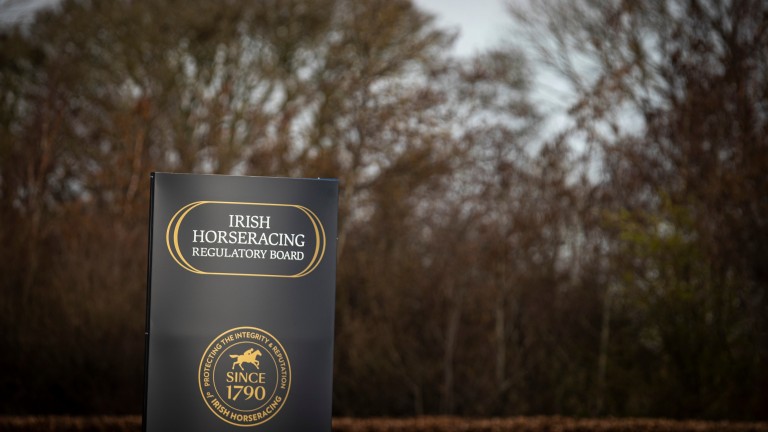Agricultural Committee approves Irish Horseracing Regulatory Board anti-doping methods but wants more done

The Irish Horseracing Regulatory Board has committed to studying the Oireachtas Agriculture Committee’s report into the sport’s anti-doping and regulatory processes, but the publication of the final document saw its anti-doping structures given a fairly resounding seal of approval.
Recommendations to beef up drug testing measures, more regulatory transparency and equine traceability were prominent in the 34=page document.
However, chairman Jackie Cahill insisted the IHRB’s anti-doping procedures were “of the highest possible international standards”, which constituted a strong vote of confidence in the regulator given it had been the centre of sustained criticism from some stakeholders and commentators over the last year.
The report followed a series of Agriculture Committee hearings, prompted by comments from trainer Jim Bolger on his concerns over drug cheats.
Bolger had suggested there would be a ‘Lance Armstrong’ in Irish racing and that illicit doping was the number one problem for the industry.
The committee’s report did not appear to endorse those views, but it did make numerous recommendations.
A perception of a ‘closed shop’ regarding the IHRB, which received €9.4 million (approx. AU$14.76m) in state funding this year, was raised by multiple speakers during the hearings.
It was a point the committee focused on in its report, concluding that “it should be considered if legislation should be altered to reclassify the IHRB as a semi-state body under the aegis of the department to ensure complete transparency in its governance”.
Such a move would represent a major change to the constitution of the regulator should it come to pass and would ensure it came under the auspices of the Freedom of Information Act, which was in the process of being comprehensively reviewed.
It was also recommended by the committee “that the IHRB board composition be reviewed and that the lack of independent members and the lack of gender balance be examined”, and it is believed steps are already being taken in this respect.
Ahead of the publication, an independent audit into the IHRB’s testing regime had been widely flagged in a bid to restore public confidence after Bolger’s comments. It was reported that review would be led by former New South Wales chief veterinary officer Craig Suann.
According to one of the report’s anti-doping related recommendations, the committee was seeking all favourites and those finishing in the top five to be hair-tested after races, a move that would likely cost several million euros to implement.
It also recommended that laboratory testing must be carried out by independent sources, insisting that a laboratory in the proposed new National Equine Centre “under the control of racing authorities” would not be acceptable.
Cahill said: “We are happy that the testing standards in Irish racing are of the highest possible international standards. There was a lot of comment in the media, and to restore public confidence we felt that transparency was very important – that is coming out clearly in this report.
“There’s no question that the IHRB is doing its testing to the highest possible standards.”
He added: “To meet the modern criteria that’s there, I think greater transparency was needed and that’s where a lot of our recommendations are coming from, that the appointees to the board should be done by the minister, that the wage structure and everything else in there should be known to the public.
“The emphasis was on greater transparency, but at no stage was evidence found that the testing regulations in Ireland were anything but of the highest international standards.”
Cahill called on the minister for agriculture, food and the marine, Charlie McConalogue, to implement the changes as quickly as possible.
According to the report, the IHRB confirmed that it aims to have CCTV “in place on all racecourses prior to the commencement of the 2022 racing season”.
A spokesperson for the regulator told the Racing Post: “We appreciate the time that the members afforded us over the two sessions we attended, and the time that they’ve given to put a comprehensive report like this together.
“We’ve seen it for the first time this afternoon and will read it in detail, and study it internally over the next few days.
“On a quick reading of the report, we have already been proactive in taking steps towards some of the points raised. We look forward to engaging with the members further in due course.”
The spokesperson added: “It had been discussed previously and the board agreed in principle at their last meeting to change the constitution to allow for independent board members.”
A lack of traceability surrounding Irish horses was also a talking point during the committee hearings and it had been suggested that a full tracking system, such as the Animal Identification and Movements (AIM) for cattle, be introduced immediately.
It was also recommended that streamlining the equine passport system by having a central database for such administration would be beneficial in decreasing errors and costs.


